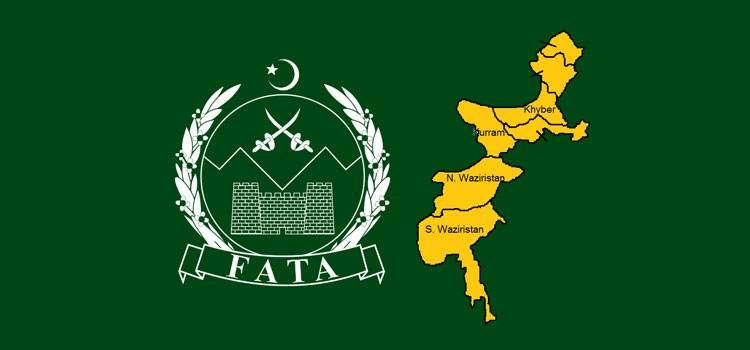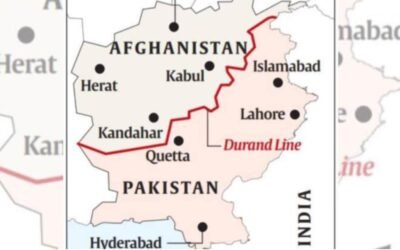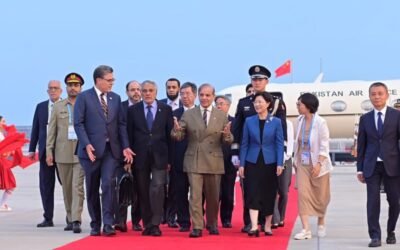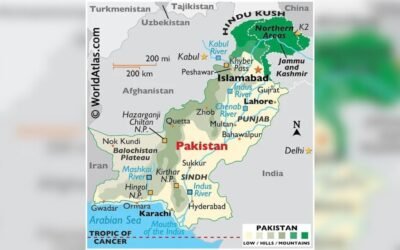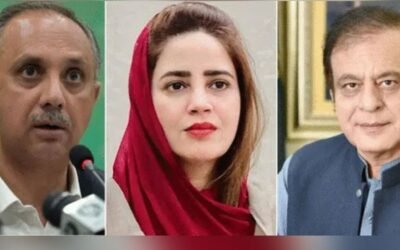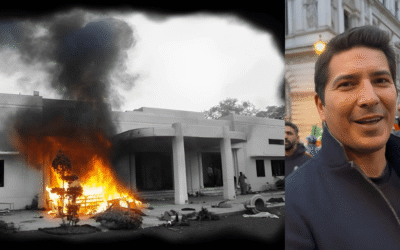In 2018, a significant event occurred in Pakistan. The Federally Administered Tribal Areas (FATA) have been merged with the Khyber Pakhtunkhwa (KP) province. This was a crucial step aimed at granting people in FATA the same rights and opportunities as other Pakistanis. It meant integrating these areas into the country’s main system after an extended period. However, this major change has brought both difficult challenges and signs of progress.
Why the Merger Happened
FATA was a unique region next to Afghanistan. It was governed by the old colonial laws, known as the Frontier Crimes Regulation (FCR). These laws differed significantly from the rest of Pakistan’s laws. People in FATA did not have the same rights or access to courts. The area also became a hiding place for militant groups, especially after 9/11. This caused conflict and hindered development.
The merger aimed to fix these big problems:
- Equal Rights: People in FATA wanted the same rights as other Pakistanis. They wanted access to regular courts and police. The FCR was viewed as a harsh and outdated law. Its removal was a key goal.
- Better Governance: FATA was governed by “Political Agents” who held significant authority. The merger aimed to establish a proper government system, similar to those in other districts. This included having Deputy Commissioners and local governments.
- Development: FATA was very poor. Many people lacked basic health and education. The poverty rate in FATA was as high as 73.7 percent. The merger promised money and plans to build roads, schools, hospitals, and create jobs.
- Security: Integrating FATA into KP was also viewed as a strategy to combat militancy. By stabilizing and developing the area, it would become more difficult for extremist groups to gain support.
- The 25th Constitutional Amendment made this merger official in May 2018. It was a big moment for Pakistan.
Political Parties’ Changing Views
The FATA merger was a significant political victory for certain parties, particularly the PTI. However, stances changed over time.
Celebration time in Khyber Pakhtunkhwa :: Massive fireworks took place at Bab-e-Khyber earlier, people of the formerly known FATA have welcomed the merger and are happy to be part of Khyber Pakhtunkhwa now 🇵🇰#PTIForKPFATAMerger pic.twitter.com/TM83HQIbhL
— PTI (@PTIofficial) May 27, 2018
- PTI’s Initial Support and Later Concerns: The Pakistan Tehreek-e-Insaf (PTI) strongly supported the merger in 2018. They even held celebrations for it, viewing it as a move towards greater justice and development for the tribal people. PTI leaders praised the merger for ending the “black law” (FCR) and bringing the tribal areas into the mainstream. However, after the government changed at the federal level and PTI remained in power in KP, their provincial leadership began voicing concerns. For instance, the KP Chief Minister (from PTI) stated that the merger had increased pressure on the province and raised the unemployment rate. This shift occurred because the promised federal funds for FATA’s development had not been fully released, leaving KP to bear the financial burden.
میرے صوبے کی عوام کو چور مت کہو میں یہ برداشت نہیں کرسکتا ۔ علی امین گنڈا پور
جنگ اور Fata merger کی وجہ سے عوام کافی بے روزگار ہوئی ۔ ہمارے ذمہ 110 ارب روپے واپڈا کے ہیں وفاق نے ہمارا 1510 ارب روپیہ دینا ہے اپنے 110 ارب کاٹ کر 1400 ارب ہمیں دیں لیکن ہماری عوام کو چور مت کہو pic.twitter.com/zixd3z8S8P
— Sir Ahmed Khokhar (@khokhar_Pedia) May 11, 2024
- JUI-F’s Opposition: The Jamiat Ulema-e-Islam (JUI-F), led by Maulana Fazlur Rehman, strongly opposed the merger from the start. They argued that the merger was a “unilateral and wrong decision” that angered tribesmen. JUI-F politicians staged walkouts from parliament, calling the day the bill passed a “black day”. Their reasons included:
- Lack of Public Consent: JUI-F argued that the people of FATA were not properly consulted through a referendum. They believed tribesmen should decide their fate.
- Threat to Tribal System: The party saw the merger as a threat to FATA’s old tribal system (Rewaj and Jirga), which they believed protected local customs and the authority of religious leaders. They felt the new laws would weaken the influence of traditional and religious figures. This stance often benefited their political base among conservative tribal elders and religious scholars.
- “Foreign Agenda”: JUI-F leaders sometimes linked the merger to a “global conspiracy” or a “foreign agenda,” arguing that it was imposed without respect for local traditions.
These differing political views have often complicated the merger’s progress, turning a national integration effort into a point of political contention.
Big Challenges After the Merger
The merger was a huge task. It was like building a new house while living in it. Many big problems came up:
- Financial Challenges: The biggest challenge was securing enough funds. The plan needed Rs. 100 billion each year for ten years for development. However, after nearly seven years, only a small portion of this money has been distributed. This lack of funds has significantly slowed progress.
- Old Ways vs. New Laws: FATA had its traditional tribal laws and customs regarding land ownership, but KP’s laws are different. Attempting to enforce KP’s laws in FATA led to confusion and disputes. For instance, land disputes rose because old tribal ownership rules conflicted with new state laws.
- Security Issues: Despite hopes for peace, violence has increased in some merged districts. Militant groups, such as the Fitn al Khwarij (FAK), have resumed their activities. This makes it difficult for people to feel safe and for development efforts to proceed. Sectarian clashes, such as those in Kurram district, have also resulted in hundreds of deaths.
- Weak Government Setup: The new government offices in FATA struggled to establish themselves. Former local forces (Levies and Khasadars) were made into police, but they often lacked training and equipment. This made it hard for them to keep law and order under the new system. Many people believe that the new officers operate in much the same way as the old “Political Agents” did, with little to no change.
- Slow Development: Even when funds were available, it was challenging to allocate them effectively. There were problems with management and a lack of trained staff. Projects like building roads and schools have been very slow. For example, a project intended to be completed by 2025, with a budget of $385.6 million from the federal government and $75 million from KP, has yet to commence its main work.
- Public Trust: People in the merged districts had high hopes. But slow changes and ongoing problems have made many unhappy. Almost half of the people in some areas are dissatisfied with the current state of affairs. There is a lack of trust in the new government processes.
Signs of Progress
Despite the big challenges, there has been some progress:
- Legal Changes: The FCR was removed. This was a huge step. It meant the main laws of Pakistan and the High Courts now apply to FATA. This gives people more legal rights.
- Political Representation: For the first time, people in FATA voted for their provincial assembly members in July 2019. This was a new experience for many, as they had previously only been able to vote for tribal elders. This gave them a voice in the KP government.
- New Offices: Many old FATA departments have joined with KP government bodies. For example, the FATA Secretariat moved into KP’s Civil Secretariat. This helps make the government work more organized.
- Basic Services: Efforts are being made to extend basic services like health and education. The plan includes fixing and rebuilding nearly 1,000 schools that were damaged during the fighting. There are also plans for new job opportunities, with the immediate hiring of 15,000 employees across various government departments and 6,000 police officers.
- Health Cards: Health cards are being given to tribal families. This helps them get medical care.
Recently, on July 1, 2025, a special committee formed by the Prime Minister met to discuss issues in the merged districts. While some political parties boycotted it, the government emphasized the need to consult all stakeholders and address their concerns. This shows ongoing efforts to find solutions.
The Road Ahead
The merger of KP and FATA is a very complex process. It involves changing laws, ways of life, and mindsets that have been in place for a very long time. The promise of peace, progress, and equal rights remains intact. However, it requires a strong commitment and careful work from the government.
To make the merger truly work, Pakistan needs to:
- Provide Promised Funds: The government must provide the promised Rs. 1,000 billion over a ten-year period. Without this, real development cannot happen.
- Fix Governance: The new government system needs to function more effectively. This involves training staff, combating corruption, and ensuring that rules are adhered to. The old system of “Political Agents” might be gone, but the spirit of that rule needs to be fully replaced by true democratic ways.
- Improve Security: The increase in violence is a significant concern. The government needs a clear plan to ensure safety in the areas and address militant groups. This is essential for people to trust the new system.
- Involve Local People: Tribal elders and local communities must be fully engaged in all decision-making processes. Their unique ways of life and land rules need to be understood and respected. A recent discussion on reviving the traditional jirga system highlights this need.
- Speed Up Development: We need to move projects forward faster while maintaining well-managed progress. The focus should be on basic needs, such as education, health, and employment. Building trust through quick and accurate results is essential.
The FATA merger is not just a legal change. It is about integrating millions of people into Pakistan’s mainstream. It is a long and challenging process. But with intense effort and true commitment, the merged districts can become a place of peace and growth.

